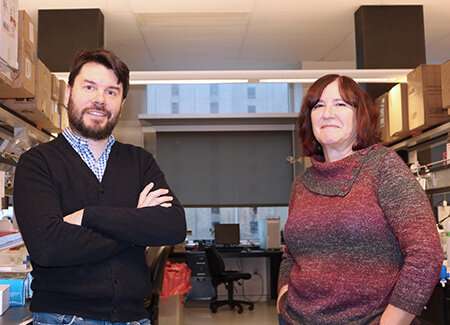Scientists at Rutgers University-Newark have discovered that when a key protein needed to generate new brain cells during prenatal and early childhood development is missing, part of the brain goes haywire—causing an imbalance in its circuitry that can lead to long-term cognitive and movement behaviors characteristic of autism spectrum disorder.
“During brain development, there is a coordinated series of events that have to occur at the right time and the right place in order to establish the appropriate number of cells with the right connections,” said Juan Pablo Zanin, Rutgers-Newark research associate and lead author on a paper published in the Journal of Neuroscience.” Each of these steps is carefully regulated and if any of these steps are not regulated correctly, this can impact behavior.”
Zanin has been working with Wilma Friedman, professor of cellular neurobiology in the Department of Biological Sciences, studying the p75NTR protein—needed to regulate cell division—to determine its exact function in brain development, gain a better understanding of how this genetic mutation could cause brain cells to die off and discover whether there is a genetic link to autism or neurological diseases like Alzheimer’s.
